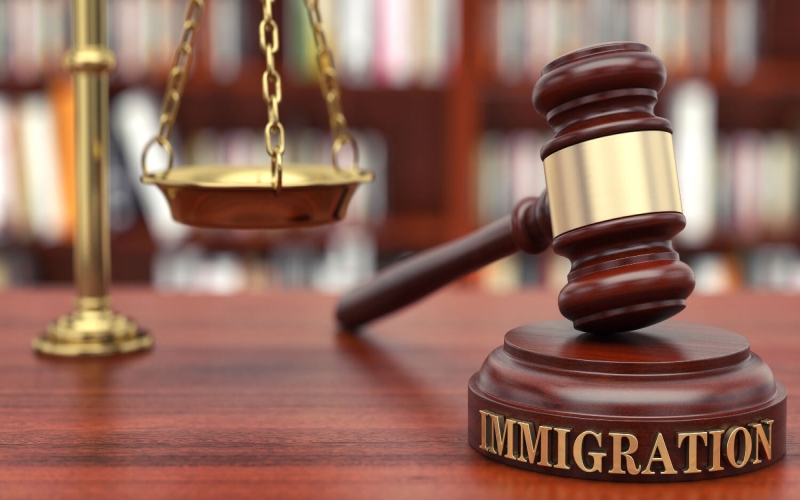In Chicago, IL, legal representation in gun crime cases is a critical service due to the city’s ongoing challenges with gun violence. As lawyers specializing in this area of law, we understand the complex web of federal, state, and local regulations that govern firearm offenses. Our expertise in navigating the Illinois legal system is essential for individuals facing charges that can have life-altering consequences.
We provide comprehensive legal counsel to those accused of gun crimes, recognizing the gravity of their situation. With a sharp focus on upholding the rights of our clients, we meticulously examine the details of each case. Our approach involves scrutinizing the circumstances leading to the arrest, the evidence presented, and the methods by which it was obtained to ensure that due process is respected.
Our firm offers a free consultation to discuss the specifics of an accused individual’s case and to outline potential legal strategies. We believe that every person deserves a fair chance to present their side of the story, and we’re dedicated to making that happen. It is our commitment to deliver informed and steadfast defense for our clients in the face of challenging times, ensuring that their voices are heard within the judicial system. Learn more about chicago gun crime lawyer
Understanding Chicago Gun Laws
In this section, we provide crucial information on the intricacies of gun legislation in Chicago, touching upon the rights and restrictions of gun ownership, the necessary permits, as well as the classifications of gun-related charges.
Gun Ownership Rights and Restrictions
Chicago’s gun laws are a complex interplay between state and local regulations. We must obtain a Firearms Owners Identification (FOID) card to legally possess or purchase firearms and ammunition in Illinois. The Second Amendment guarantees our right to bear arms, yet this right is subject to state-specific regulations. For instance, assault weapons and high-capacity magazines have restrictions or bans in Chicago.
Under the Unlawful Use of Weapons (UUW) statute, carrying a loaded or accessible firearm in certain public places without a permit is a criminal offense. We must also respect property rights; private establishments in Chicago may prohibit firearms on their premises.
Firearms Identification and Carry Permits
To navigate the legal framework, we must be aware of key permits:
- Firearms Owner Identification (FOID): Necessary for owning and purchasing firearms and ammunition.
- Concealed Carry Permit: Granted under the Firearm Concealed Carry Act, allows the carrying of a concealed firearm.
To obtain these permits, we must satisfy eligibility criteria which include age, background checks, and training requirements. Carrying firearms without a FOID or Concealed Carry Permit is deemed Unlawful Possession of a Firearm.
Classifications of Gun Crimes and Charges
Gun-related charges vary significantly and are influenced by several factors. They include but are not limited to:
- Unlawful Use of a Weapon (UUW): This includes carrying or possessing a firearm in a prohibited area or manner.
- Unlawful Use of a Weapon by a Felon (UUW by a Felon): This is a more serious offense where individuals with a felony record are found in possession of a firearm.
| Charge Classification | Circumstances |
| Misdemeanor UUW | Carrying without intent to harm, without prior convictions |
| Felony UUW | Carrying with intent to harm, or with a silencer, or a previous criminal record |
It is important to recognize that penalties range from fines to significant prison time, depending on the severity and nature of the crime.
Legal Defense Strategies
In navigating the complexities of gun crime allegations, we equip ourselves with robust legal defense strategies tailored to the individual case.
Defense for Unlawful Use of a Weapon Charges
Unlawful use of a weapon charges can be approached by examining the circumstances of the arrest. If there was an illegal search and seizure, we may challenge the admissibility of evidence. In scenarios where self-defense is applicable, we may assert that the use of the weapon was justified under the law.
- Evidence Challenges: An illegal search may lead to suppression of the weapon as evidence.
- Justification: Asserting self-defense when the weapon was used to protect against an immediate threat.
Rights and Defenses for Accused Felons
Accused felons often face heightened scrutiny and severe consequences. We ensure the protection of their basic rights through all stages of the legal proceedings.
- Prior Convictions: If the individual’s status as a convicted felon is under scrutiny, we’ll review the past case for any potential legal errors.
- Probation and Community Service: Alternatives to incarceration, such as probation or community service, may be negotiated, especially in cases where the felon is a non-violent offender.
Mitigating Factors and Plea Negotiations
We thoroughly investigate potential mitigating factors that can influence the severity of the charges or the sentence. During plea negotiations, our aim is to achieve the most favorable outcome for our client.
- First-Time Offenders: Less severe penalties may be pursued for those with no prior criminal history.
- Circumstantial Evidence: We may negotiate lesser charges if the evidence is circumstantial and not direct.
In each case, we as criminal defense attorneys aim to employ a strategy that aligns with our client’s best interests, whether that means challenging evidence, advocating for their rights, or seeking alternative sentencing options.
